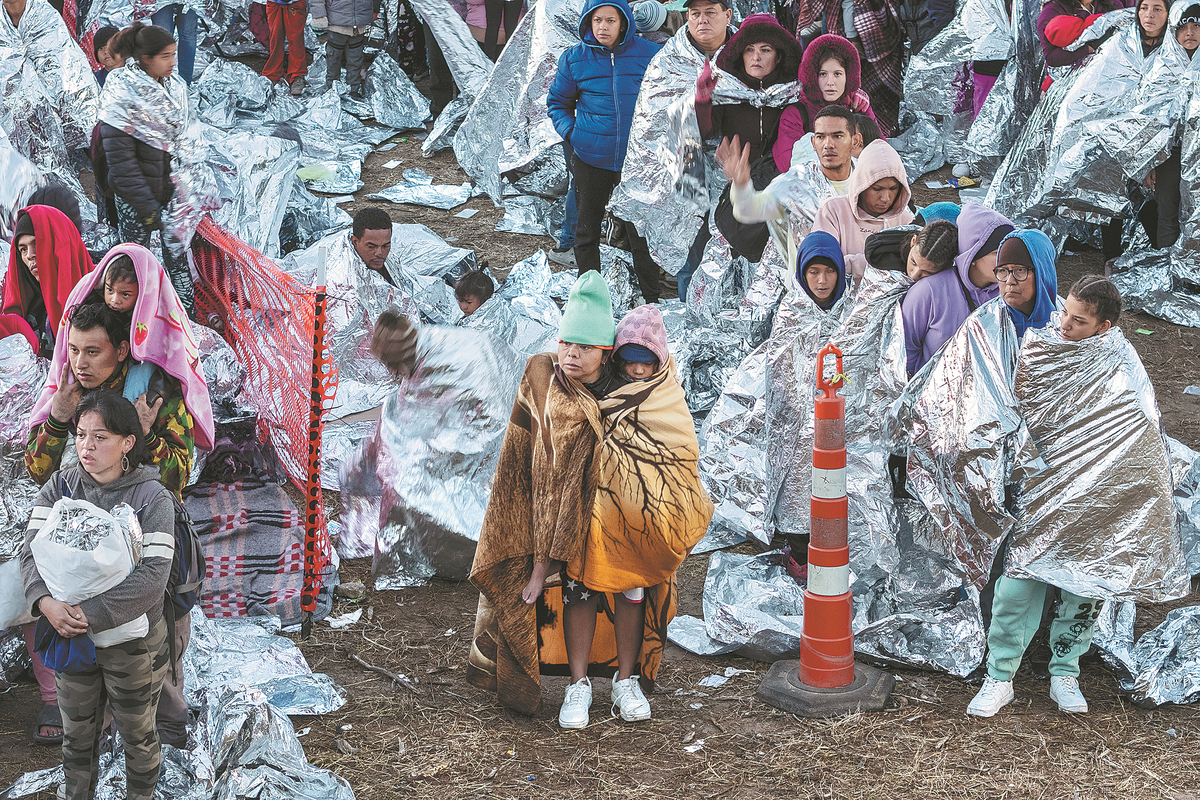Texas makes border crossing a state crime
By MAY ZHOU in Houston | China Daily Global | Updated: 2023-12-21 10:16

At first, Texas Governor Greg Abbott issued an order to arrest migrants illegally crossing the border under the law of "trespassing on private property". As a result, thousands of migrants caught on private properties at the border were entered into the Texas criminal justice system in the past year.
On Monday, Abbott signed a bill next to a border wall in Brownsville to make illegal crossing from Mexico a state crime, giving state law enforcement agencies the power to arrest any undocumented immigrants in the state. It will take effect in early March.
Under the new law, SB4, illegal crossing will be a Class B misdemeanor carrying a punishment of up to six months in jail. Repeat offenders will face a charge of a second-degree felony with a punishment of two to 20 years in prison.
The law also increases punishment for people who smuggle immigrants or operate a stash house to shelter migrants. They would face a minimum sentence of 10 years and five years, respectively. That measure will become effective in February.
Abbott said he signed the bill and two other immigration-related bills "to better protect Texas — and America — from President Joe Biden's border neglect".
Abbott said the bills would drive migrants away from Texas.
"We expect a dramatic drop — well over 50 percent, maybe 75 percent of the people coming over the border illegally will stop entering through the state of Texas," he said at the signing ceremony on Monday.
Apprehensions of migrants at the border hit a record on Monday, with at least 12,600 encounters during a period of 24 hours, according to media reports citing US Customs and Border Protection, or CBP, sources.
Two rail bridges in El Paso and Eagle Pass carrying freight between Mexico and Texas were closed at 8 am on Monday by the Border Patrol to try to stem the use of freight cars from being used by migrants. The bridges were closed for three days in September and left $1 billion worth of produce sitting idle in trains stuck on either side.
The bridges were closed "in order to redirect personnel to assist the US Border Patrol with taking migrants into custody", the CBP said in a statement.
The CBP said on Sunday that smugglers were using the freight trains with increasing frequency to transport their human cargo. The trains are extremely dangerous for migrants, with many clinging to the sides and top and falling, losing limbs and breaking bones.
Temporary closures
The CBP has imposed similar temporary closures in recent weeks, shutting the Lukeville Port of Entry in Arizona, a pedestrian entrance in San Diego, and a vehicle crossing in Eagle Pass.
After the Lukeville closure, Arizona Governor Katie Hobbs last week ordered the National Guard troops to the border with Mexico, saying the federal government's decision had put public safety and commerce at risk.
Hobbs, a Democrat who has sought to distance herself from the White House's approach to border security, has criticized the Biden administration for inaction on border security. Last week, she sent a letter urging the federal government to reopen the border crossing and reimburse the state for border enforcement costs.
"Yet again, the federal government is refusing to do its job to secure our border and keep our communities safe," Hobbs wrote in a statement accompanying the order. "With this executive order, I am taking action where the federal government won't."
The Association of American Railroads, an industry trade group, issued a statement on Monday saying the suspension of operations in Eagle Pass and El Paso will affect consumers.
"As CBP continues to address the exceptionally challenging humanitarian crisis, railroads urge CBP to also safeguard the nation's supply chain from further disruption," said Ian Jefferies, president and CEO of the association.
Many say that Texas' SB4 violates federal law, which makes border issues a federal matter, not a state matter.
US Representative Joaquin Castro, a Democrat from San Antonio, sent a letter signed by other Texas congressional Democrats and members of the Congressional Hispanic Caucus asking the US Department of Justice to sue Texas to stop the law from taking effect.
Ai Heping and Heng Weili in New York contributed to this story.
























